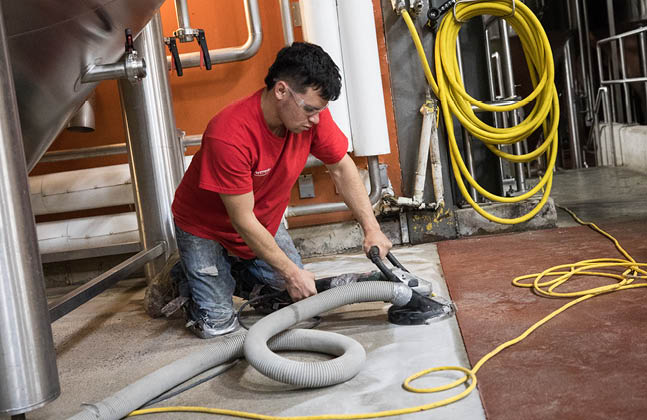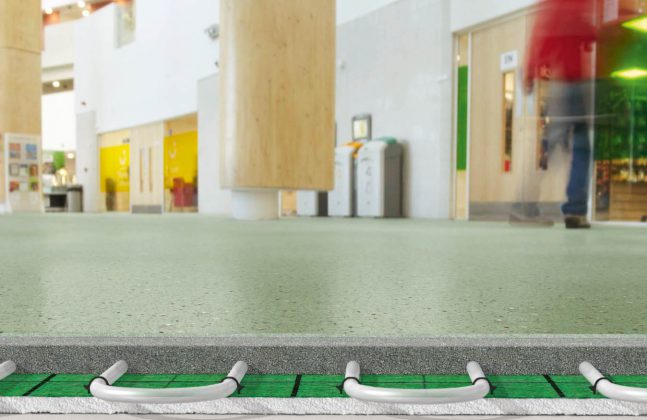When deciding on flooring systems, the choice of materials can sometimes be overwhelming. With so many different styles to choose from, contemplating the thickness of the flooring can sometimes be overlooked. As a general rule, the thicker the system, the longer its service life and the better able it will be to withstand damage from heavy impacts, extreme temperatures and chemicals.
Here, we summarise everything that you need to know about how the thickness of flooring systems can affect its performance.
1. Tailored Thickness
The flooring system can be applied in varying thicknesses to accommodate different functionalities. For example, a floor coating of 150 to 300 microns is suitable for light to medium-duty environments, with moderate footfall. Whereas, a multi layer floor coating of 2mm or thicker is able to withstand mid-heavy to heavy-duty environments.
To illustrate this point, in an office complex, a greater thickness would be well suited to reception areas where heavy footfall is expected from staff and visitors. In contrast, the flooring in the offices themselves will be subject to much lighter footfall and would therefore not need to be quite as thick.

Specifying a thick, robust floor in areas of high traffic can increase the life span of the floor
2. Solutions to Challenges
As well as volume of traffic, different thicknesses are required to withstand different challenges, such as exposure to extreme temperatures.
For example, a 6mm polyurethane flooring system can withstand a temperature range from -25°C to 100°C, and yet a 9mm polyurethane flooring system can withstand a temperature range from -45°C to 120°C. This means that thicker polyurethane coatings are able to accommodate a wider range of thermal conditions and are less likely to suffer thermal shock damage due to factors such as industrial freezers, steam cleaning or commercial ovens. These are particularly key considerations for food and beverage facilities.

Exposure to extreme temperatures can come from industrial ovens
Flowfresh from Flowcrete is ideal for such scenarios. Installed in a mortar form created by polyurethane concrete technologies, it can be laid in a variety of thicknesses, from 2-9mm, depending on the on-site conditions.
3. Substrate Thickness
Substrate thickness is also an important requirement in order to provide a stable base for the floor finish.
It is important that the substrate is specified to the correct thickness to cope with the expected levels of traffic, as any weaknesses in the substrate will eventually have a detrimental effect on the floor finish. An improperly prepared substrate can result in cracks on the floors surface, meaning that expensive repairs will need to be carried out over time, which may not have been budgeted for initially.

Surface preparation is key to a solid and reliable floor
4. Considering the Budget
The budget consideration can be an important aspect for an architect looking at specifying different flooring systems in different thickness.
The specifier must consider the performance and lifespan of the chosen flooring system against the estimated cost. Costs could be saved by only using materials with increased thickness in certain areas where it would be needed most.
For any further information on choosing the correct thickness of flooring please leave a comment below and our experts will be in touch.





